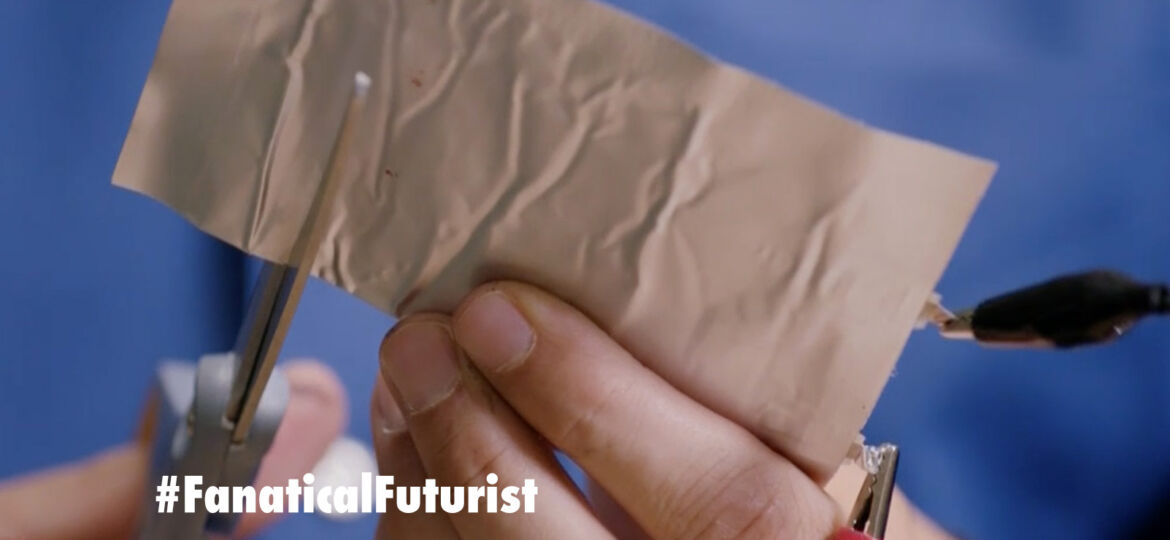
WHY THIS MATTERS IN BRIEF
Solid state batteries charge faster, , don’t catch fire, last longer and and are cheaper to make than their liquid Lithium Ion cousins, making them a game changer.
Recently technology giants like Dyson, Samsung and Total have collectively invested $65 million in Ionic Materials, a company based out of Massachusetts in the US. This enormous vote of confidence is a bit shocking, as most people probably haven’t even heard of the small company before. But if Ionic Materials delivers on its recent claims, to create what some are calling the “Jesus battery,” the world’s first safe, working solid state battery, then these investments could pay off big style.
Solid state batteries are special because they replace the liquid or polymer electrolyte found in current lithium-ion batteries with a solid. The challenge, however, is in finding a solid material that is conductive enough at room temperature to be used in large batteries. Ionic Materials though, which was established in 1986, seems to be making unique progress in solid state technology. They’ve created a brand new material, a liquid crystal polymer, that could solve many of the pressing issues that prevent this type of battery from entering the market. So far, Ionic Materials’ researchers have claimed three major breakthroughs.
First, they assert that Lithium ions move as fast or even faster through their polymer than they would through a conventional liquid electrolyte system, or in layman’s terms a traditional battery. This seems counter intuitive because the polymer is a solid, but if it’s true, and early indications are that it is, then this would clear a huge hurtle to creating the world’s first working solid-state batteries. Second, the company also says that their material works at an impressive five volts and can be made simply and cheaply. And third, they’ve stated that, while most materials in solid state research operate at about 60° C (140° F), their material works under much cooler conditions — room temperature.
Ionic Materials seems to also have a leg up on competitors with its unique, cheap, and simple-to-produce material. But, if they are correct in their assertions, why would a solid-state battery be so groundbreaking?
Well, they’re much safer than current batteries, for one thing. Lithium ion batteries are flammable, something we’ve seen all too often with headline after headline about exploding phone and laptop batteries from companies like Dell and Samsung, and they’re also prone to overheating and combustion. Solid state batteries, on the other hand, preserve lithium in a non-flammable state, and that’s just one of the game changers.
Solid-state batteries are also able to be smaller, cheaper to make, and higher capacity than liquid-based batteries. They could potentially charge faster, last longer, and have better overall performance, all of which are good things, right? They could also help companies make better smartphones and electric vehicles.
The main challenge to realizing solid-state batteries though has been discovering a material with all of the right properties. If Ionic Materials is right and their polymer is the one to beat, then we could be closer to solid-state batteries than ever before. Still, the company has not released much data on their technology, so many experts remain sceptical of how close the researchers actually are to a working product so stay tuned…

















I need the name of the tiny company who is developing the futurist battery called the Jesus battery. I not only need the name but where could I find its shares and their price per share. Can you assist?
What is the best way to invest in SOLID STATE BATTERIES? The only company I have found making them is privately held.
Hi Tim
Good question, at the moment most of them are – the only ones that aren’t include Toyota who just unveiled some more solid state battery products, the market is still fairly nascent though